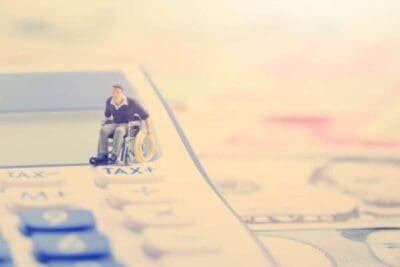
When it comes to our health and wellbeing, having access to the right medical supplies can make all the difference. From wheelchairs and hearing aids to prosthetics and medication, these items play an essential role in improving our quality of life. However, purchasing these supplies can often come with a hefty price tag. That’s where tax exemptions come in – they provide a valuable opportunity to reduce the financial burden associated with these essential items. In this blog, we will explore the important points about tax exemptions on medical supplies, including specific medical supplies that may be eligible, how to determine if your medical supplies are exempt, and what you need to know to maximize your potential benefits. So, whether you’re an elderly individual, a caregiver, or someone living with a long-term health condition, read on to discover how you can make the most of these valuable tax exemptions.
Know Your States Tax Laws
The tax exemption laws and regulations for medical supplies can differ significantly depending on the location of purchase. In some states, tax exemptions are only available for medical supplies that are deemed essential due to a disability or chronic health issue. Conversely, other states may provide tax exemptions for all medical supplies regardless of their purpose.
Currently the following states provide tax exemptions on medical supply purchases. Be advised that tax laws can change, altering this list.
It is recommended to familiarize yourself with the local tax laws and to seek clarification from the relevant tax authorities to determine the eligibility for tax exemptions in your specific location. In order to claim a tax exemption for medical supplies, documentation that verifies the medical necessity of the supplies may be required. This could include a physician’s note or prescription. It is recommended to keep these important documents, along with receipts for all medical supply purchases, for future reference.
If you aren’t sure if your medical supplies are tax exempt, there are a few steps you can take. Firstly, it’s important to check the tax laws in your state. These laws can vary and determine which medical supplies are exempt from sales tax and the documentation required to claim the exemption. You can find this information on your state’s tax authority’s website or by consulting a tax professional. Secondly, you can ask your healthcare provider for assistance. They may be able to provide you with information on whether your medical supplies are exempt and what documentation you need. Lastly, when purchasing your medical supplies, you can also ask the retailer about the exemption and what documentation is required to claim it.
What Supplies are Tax Exempt
Medical supplies encompass a wide array of equipment and products, including but not limited to wheelchairs, hearing aids, prosthetics, oxygen equipment, and medication, that serve to enhance one’s health and wellbeing. The specific medical supplies that may be tax exempt can vary by state. Some common types of medical supplies that may be exempt from sales tax include:
As stated previously, tax exemptions vary from sales tax as does the documentation required. Follow the steps above to ensure that you are in compliance with your states tax laws.
In addition to state taxes, medical expenses, including the cost of medical supplies, may also be deductible on federal taxes if they exceed 7.5% of one’s annual income. As a result, it may be beneficial for those with long-term health conditions to keep track of their medical expenses for potential tax deductions.
Choose All-Star Medical for all Your Tax Exempt Medical Supplies
If you’re in need of medical supplies, All-Star Medical is here to help. With an expansive inventory of medical supplies available both online and in store, All-Star Medical is a one-stop-shop for all your medical supply needs. And, with a knowledgeable and experienced team of professionals, you can trust that you’ll receive accurate and up-to-date information regarding tax exemption. So, whether you’re looking to purchase medical supplies or simply want to learn more, be sure to turn to All-Star Medical Supply for all your medical supply needs.
3520A Central Pike
Hermitage, TN 37076
615-730-9438
332 Southgate Ct
Brentwood TN 37027
615-567-6116
Monday-Friday: 9am-5pm
Saturday & Sunday: Closed
3520A Central Pike
Hermitage, TN 37076
615-730-9438
332 Southgate Ct
Brentwood TN 37027
615-567-6116
Monday-Friday: 9am-5pm
Saturday & Sunday: Closed

[copy content=”PIN6″]Click here to copy to clipboard[/copy]
Notifications